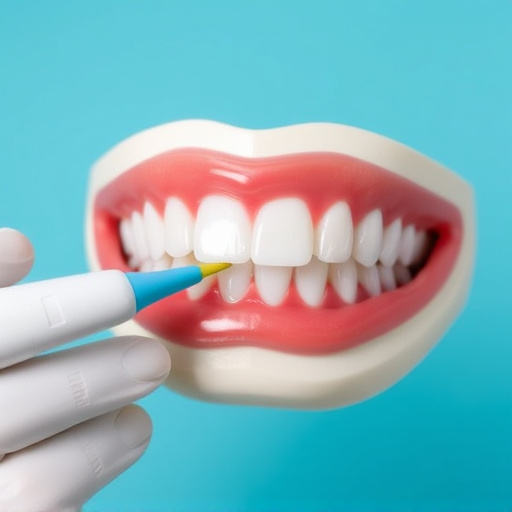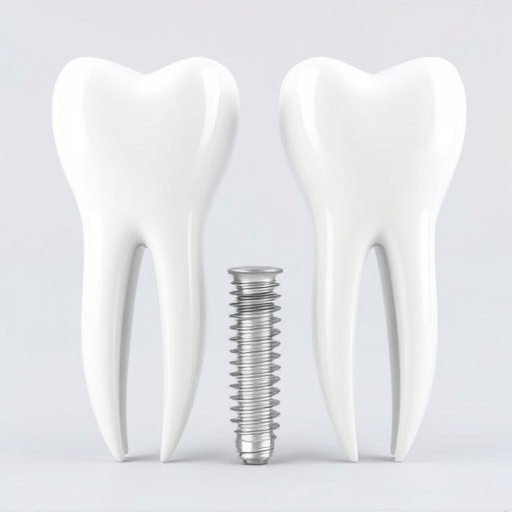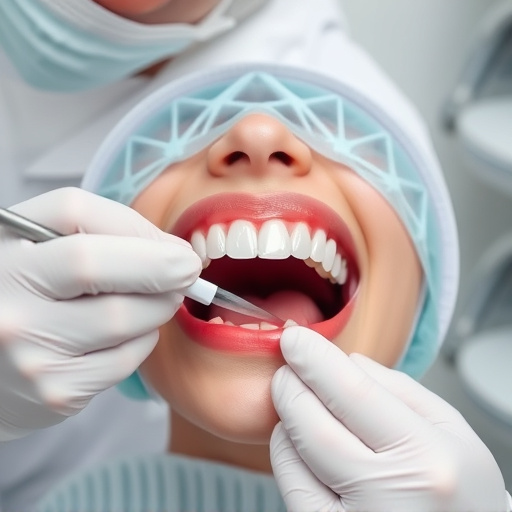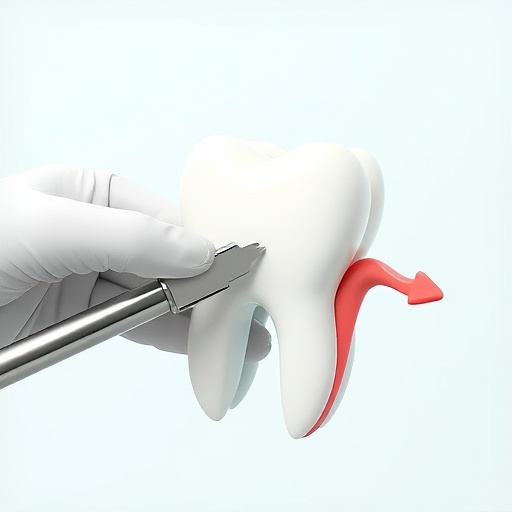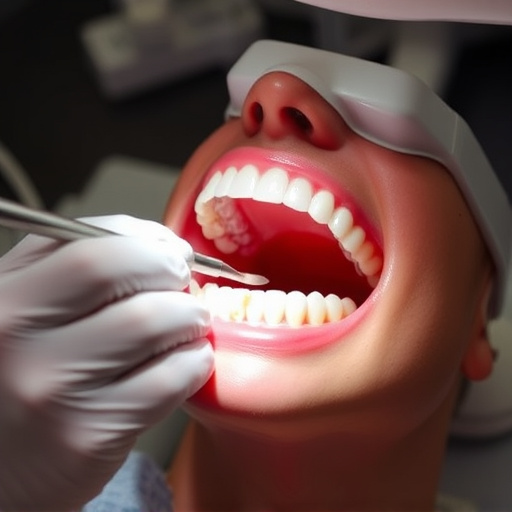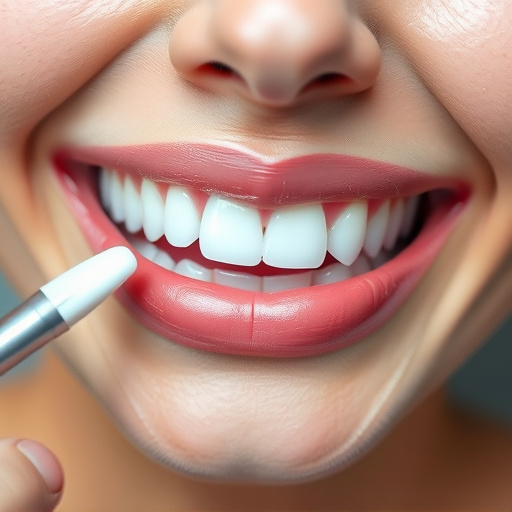Tooth sensitivity treatment targets enamel erosion and exposed dentin nerves by addressing root causes like poor hygiene or acidic diets. Dental professionals recommend solutions from improved brushing habits and fluoridated toothpaste to advanced procedures like dental bonding. Preventive dentistry, including regular check-ups and dietary adjustments, is crucial for managing tooth sensitivity and maintaining oral health long-term.
Tooth sensitivity, characterized by sharp pain or discomfort in response to hot, cold, sweet, or acidic foods, affects many. Understanding that tooth sensitivity treatment options vary based on underlying causes is key to effective management. This article guides you through the complexities of tooth sensitivity, from identifying triggers and common causes to exploring a spectrum of treatment options, including over-the-counter solutions, professional dental interventions, and lifestyle changes. By targeting the root cause, individuals can achieve long-term relief and maintain optimal oral health.
Understanding Tooth Sensitivity

Tooth sensitivity is a common dental issue characterized by a tingling or sharp pain in response to hot, cold, sweet, or acidic substances. It often affects the tooth’s enamel, which serves as the protective layer over the dentin, the tooth’s second layer. When this enamel erodes or becomes weakened, the sensitive nerves within the dentin can be exposed, leading to discomfort. This condition is more than just an annoyance; it can significantly impact a person’s quality of life and eating habits.
Identifying the underlying causes is crucial in determining the most effective tooth sensitivity treatment. In many cases, it stems from various factors such as poor oral hygiene, harsh brushing techniques, or even certain dietary choices. For example, excessive consumption of acidic foods and beverages can gradually wear down enamel. A visit to a family dentistry practice can help assess these issues through comprehensive dental exams and preventive dentistry measures. Simple solutions include adopting better brushing habits and using fluoridated toothpaste, while more advanced procedures like dental bonding might be recommended for severe cases to restore the tooth’s protective layer and provide lasting relief from sensitive teeth.
– What is tooth sensitivity?
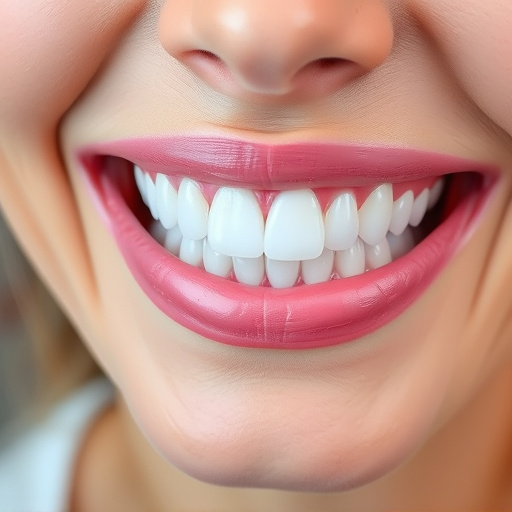
Tooth sensitivity refers to a common dental issue characterized by discomfort or pain in response to hot, cold, sweet, or acidic substances, even gentle brushing. It’s typically caused by exposed dentin, the layer beneath the tooth enamel that contains tiny tubes connecting to the nerve. These tubes can become exposed due to factors like tooth decay, gum recession, tooth wear, or structural abnormalities. The sensitivity often manifests as sharp, sudden pains and can greatly impact an individual’s quality of life.
Addressing tooth sensitivity requires a comprehensive dental care approach tailored to the underlying cause. Effective treatment options include fluoride applications for desensitizing teeth, bonding agents that cover exposed dentin, and prescription toothpaste designed to block the pain signals. In cases where gum recession is the primary issue, procedures like gum grafting or root planing can be recommended. Preventive dentistry plays a crucial role in managing tooth sensitivity, emphasizing regular check-ups, proper oral hygiene practices, and dietary adjustments to mitigate further damage and promote overall oral health. Even children’s dentistry considers preventive measures for early identification and management of sensitive teeth.
– Common causes of tooth sensitivity

Tooth sensitivity is a common dental issue that arises from various factors. One of the primary causes is the exposure of the tooth’s inner layers, including the dentin and pulp, due to receding gums or enamel wear. This can be attributed to harsh brushing techniques, teeth grinding (bruxism), or even certain systemic conditions like gum disease. Another significant contributor is the eruption of wisdom teeth, which can lead to sensitivity and pain if they grow in at an odd angle or partially erupt within the gum line.
Additionally, tooth sensitivity might result from damaged or fractured enamel, which exposes the more sensitive areas beneath. Certain cosmetic procedures, such as dental crowns or whitening treatments, while effective for enhancing smile aesthetics, can also inadvertently cause sensitivity if not properly executed. In many cases, addressing the underlying cause is crucial for long-term relief. Restorative dentistry techniques, including proper gum treatment and protective coatings, offer tooth sensitivity treatment options tailored to individual needs.
When addressing tooth sensitivity treatment, it’s crucial to identify and target the specific cause. Whether it stems from enamel wear, gum recession, or underlying dental conditions, various options are available. From desensitizing toothpastes and oral rinses to in-office procedures like fluoride applications and gum grafting, patients can find relief tailored to their needs. Consulting a dentist is essential to determine the most effective approach for managing and overcoming tooth sensitivity.





